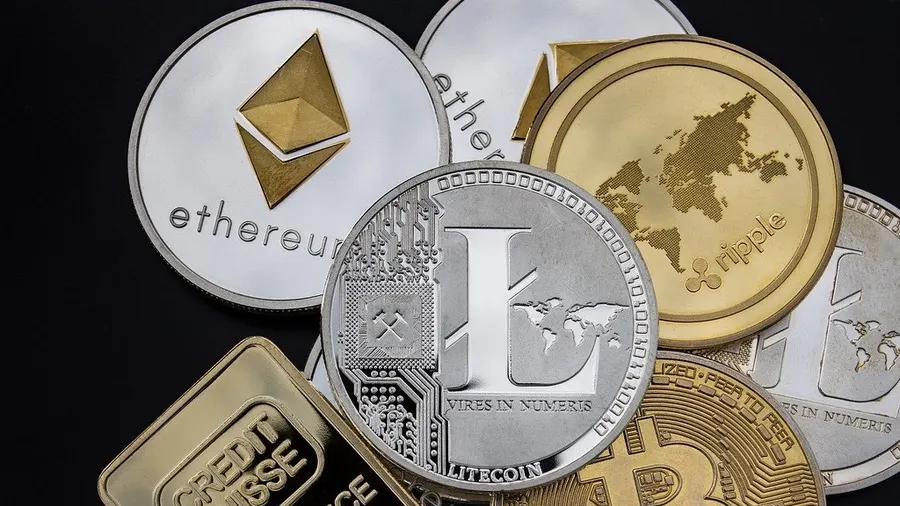Cryptocurrencies offer many distinct advantages over traditional forms of currency, including being uncontrolled by any central authority and thus offering greater freedom and anonymity than their counterparts.
Digital currency such as bitcoin can be obtained through mining, which involves using sophisticated computer hardware to solve difficult mathematical equations. Once acquired, these digital coins are stored in encrypted wallets linked to a public ledger called blockchain and kept safe therein.
What is a cryptocurrency coin?
Cryptocurrencies are digital assets that store value and act as mediums of exchange similar to traditional currency. Cryptocurrencies can be used online to purchase goods or services; their prices tend to fluctuate rapidly with tax implications that should be carefully considered before investing.
Bitcoin was developed in 2009 as a decentralized global means of exchange that was both censorship-resistant and easily transferable. Many other cryptocurrencies follow its principles, while there are thousands more with specific features or purposes.
Some cryptocurrencies such as Bitcoin, Ethereum and Litecoin were developed as mining rewards; others are developed specifically for specific uses on an existing blockchain (BNB, issued by Binance as one of the world’s leading crypto exchanges). Other cryptocurrencies may feature governance tokens to provide holders voting rights in DAOs as well as utility tokens providing users access to platform products or services; there are even stablecoins aimed at maintaining purchasing power over time.
How do cryptocurrencies work?
Cryptocurrency operates like traditional money, yet is independent from banks or governments in its issuance and transactions. Instead, its management relies on software instead, with transactions verified through blockchain records – providing an independently verifiable record of every exchange made via cryptocurrency.
Transactions made using cryptocurrency coins are irreversible, which disproves one of the main arguments used by credit card companies to justify their high processing fees. Furthermore, their portability and value increase significantly when not linked to any particular institution or country.
Some advocates for cryptocurrencies believe they will one day replace traditional forms of money; however, most interest in cryptocurrencies seems speculative and there are multiple reasons to doubt if cryptocurrencies will prove an adequate replacement to traditional currencies and banking systems. Price fluctuations make maintaining purchasing power difficult while security remains questionable; though this area continues to advance with time.
What are the different types of cryptocurrencies?
There are various cryptocurrencies. Most can be broken down into two broad categories: coins and tokens. Coins have their own independent blockchains such as Bitcoin; tokens piggyback off another chain such as Ethereum’s.
Cryptocurrency transactions are recorded on a decentralized and secure public ledger, which verifies ownership and prevents any tampering while enabling fast, low-cost transactions. Cryptocurrencies can be used both for daily purchases as well as long-term investments.
Note that cryptocurrency investments are unsupported by any government or central bank and as such can be highly volatile, potentially losing value over time. Furthermore, they can be vulnerable to hacking attempts that steal funds; to safeguard your digital wallets against these attacks it is advisable to use two-factor authentication and keep digital wallets safe with two-step verification enabled for increased protection of funds and two-factor authentication is strongly advised to prevent unauthorised access of funds by hackers and thieves. Finally, before investing any cryptocurrency it is crucial that sufficient research be conducted first before making decisions that result from investing.
How do I buy cryptocurrencies?
There are various methods of purchasing cryptocurrency coins. Most people buy through an online exchange, similar to stock brokerage. Once you select an exchange, fund your account using bank transfer or credit card – once this step has been taken you can begin trading!
When purchasing cryptocurrency, you are investing in an emerging technology. Cryptocurrencies don’t rely on central authorities for security or functionality – rather they use peer-to-peer networks of computers running free open-source software that enable value transfers globally, instantly, 24/7 with minimal fees.
Since there are so many cryptocurrencies out there, it’s essential that you find one that fits both your investment goals and risk tolerance. Popular choices include Bitcoin, Ethereum and Litecoin; Tether and USD Coin are stablecoins designed to maintain stability relative to the dollar. Furthermore, you need to decide where you will store your crypto assets; some people opt to keep their investments with the exchange where they were purchased through while others prefer a secure wallet under their own control.





